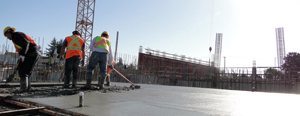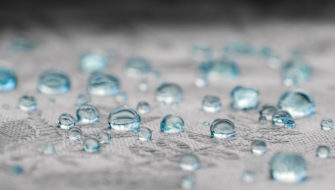In the world of concrete mixtures, there are many different methods of mixing, and from that, a different product is produced, one of which is Self-Consolidating Concrete.
Self-Consolidating Concrete (SCC), also known as Self-Compacting Concrete, is defined by the American Concrete Institute, as a concrete mix that can be placed purely by means of its own weight, with little or no vibration. The spread, its version of the slump test, typically ranges in the 18 to 32 inches area.
Advantages
- Is highly flowable, non-segregating concrete
- Encapsulates even the most congested reinforcement
- Little to no vibration required
- Maintains concrete mechanical and durability characteristics
- Can be placed at a faster rate; Improved pumpability
- Improved consolidation around reinforcement and bond with reinforcement
- Improved concrete surfaces (visible concrete quality)
These benefits lead to cost savings for any given project because not as much labor or time is required when using SCC. The highly flowable nature of SCC is due to careful mix proportioning, replacing course aggregate with fines and cement, and adding chemical admixture, such as a superplasticizer (Water-reducing admixture).
Disadvantages
- Difficult to get the correct mix proportions
- higher form pressure due to the highly flow of the concrete (may require stronger formwork
- Short window of time between mixing and placing
- At times, truck cannot be filled to capacity; high-flow concrete is at greater risk of spilling
- High material costs to create mix SCC
Regardless, of SCC’s disadvantages, it can be applied as a more efficient concrete mix under certain conditions. For instance, for precast concrete, it is often desirable for a short duration before stiffness is regained. It is also beneficial for jobs with highly reinforced areas where the use of a vibrator cannot be instituted.
For more detailed information on SCC, please visit the American Concrete Institute.





